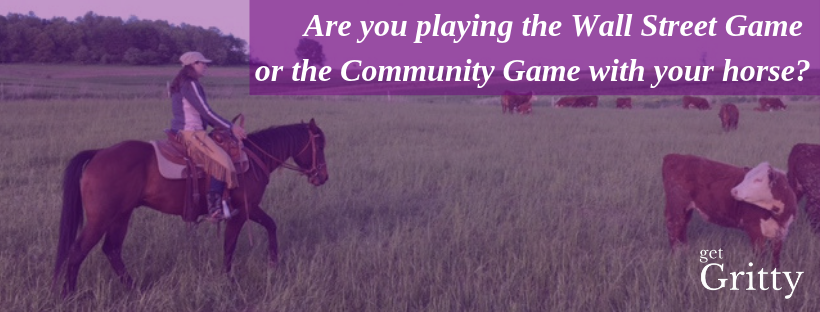|
In 2004, Stanford University Researchers Liberman, Ross and Samuels* asked undergraduate students to nominate their classmates that were the most cooperative and their classmates that were the most competitive. They didn't tell these students that they had been nominated to participate because they were thought to be cooperative or competitive by their classmates. The nominated students then were assigned to two test groups, with money as the prize. Test Group One was assigned to a task called the "Community Game," and Test Group Two was assigned to a task called the "Wall Street Game." In each group, the individuals needed to make a choice-either a win-win choice that benefited everyone, or to make a win-lose choice that only benefited themselves. No matter if the individual's initial quality was cooperative or competitive , the students in the Community Game group were more likely to be generous and choose the "win-win" and the students in the Wall Street Game group were more likely to be selfish and choose the "win-lose." The only difference between the two groups? The name of the game. Now, you might be asking, what the heck does this study have to do with horses?
And on the surface the answer would appear to be not much. However, let's dig a little deeper. What this study revealed is that how priming works to affect our mindset, and how we innately respond to situations depending on our mindset. In this case, the words "Wall Street" and "Community" were the primers. These primers affected the students' mindset. Each term carries with it meaning and emotion, and the choices that were made after hearing these priming words show the impact of these emotionally charged words-either seeking the win-win or the win-lose depending on whether they were primed with a competitive or generous mindset. Now, think about your horsemanship. Are you primed with a "Wall Street Game" or "Community Game" mindset when you go to work with your horse? When you work with your horse and you encounter resistance, do you feel like you have to be the boss, that you must get your horse's respect and make him listen? Is it a win-lose situation that you must win? Or do you look for the win-win? When you encounter resistance do you dig a little deeper, ask why, and seek the cause? When you approach your horsemanship (and your life) from the heart, and with the intent of improving yourself and your horse, it is easier to find the win-win choices. And it all starts with our mindset. Are you priming yourself to play the Wall Street Game, or the Community Game with your horse? Get Gritty, Chevy *Liberman, V., Samuels, S. M., & Ross, L. (2004). The Name of the Game: Predictive Power of Reputations versus Situational Labels in Determining Prisoner’s Dilemma Game Moves. Personality and Social Psychology Bulletin, 30(9), 1175–1185. https://doi.org/10.1177/0146167204264004
1 Comment
|
